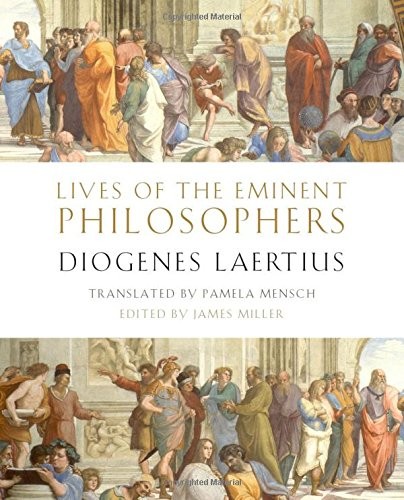Hardcover, 704 pages
Published May 14, 2018 by Oxford University Press.

Hardcover, 704 pages
Published May 14, 2018 by Oxford University Press.
Everyone wants to live a meaningful life. Long before our own day of self-help books offering twelve-step programs and other guides to attain happiness, the philosophers of ancient Greece explored the riddle of what makes a life worth living, producing a wide variety of ideas and examples to follow. This rich tradition was recast by Diogenes Laertius into an anthology, a miscellany of maxims and anecdotes, that generations of Western readers have consulted for edification as well as entertainment ever since the Lives of the Eminent Philosophers, first compiled in the third century AD, came to prominence in Renaissance Italy. To this day, it remains a crucial source for much of what we know about the origins and practice of philosophy in ancient Greece, covering a longer period of time and a larger number of figures-from Pythagoras and Socrates to Aristotle and Epicurus-than any other ancient source.
This new edition …
Everyone wants to live a meaningful life. Long before our own day of self-help books offering twelve-step programs and other guides to attain happiness, the philosophers of ancient Greece explored the riddle of what makes a life worth living, producing a wide variety of ideas and examples to follow. This rich tradition was recast by Diogenes Laertius into an anthology, a miscellany of maxims and anecdotes, that generations of Western readers have consulted for edification as well as entertainment ever since the Lives of the Eminent Philosophers, first compiled in the third century AD, came to prominence in Renaissance Italy. To this day, it remains a crucial source for much of what we know about the origins and practice of philosophy in ancient Greece, covering a longer period of time and a larger number of figures-from Pythagoras and Socrates to Aristotle and Epicurus-than any other ancient source.
This new edition of the Lives, in a faithful and eminently readable translation by Pamela Mensch, is the first rendering of the complete text into English in nearly a century. Lavishly illustrated with a vast array of artwork that attests to the profound impact of Diogenes on the Western imagination, this edition also includes detailed notes and a variety of newly commissioned essays by leading scholars that shed light on the work's historical and intellectual contexts as well as its rich legacy. The result is a capacious, fascinating, and charming compendium of ancient inspiration and instruction.